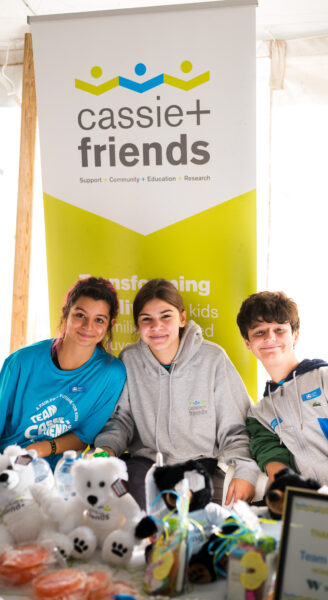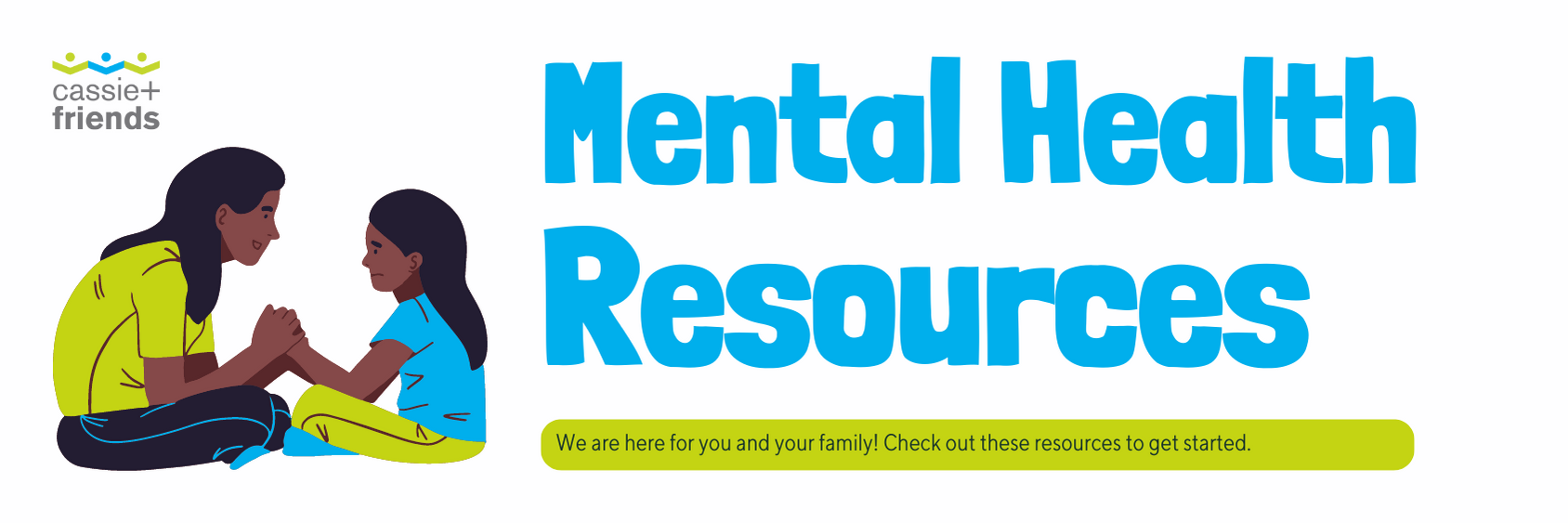A recent report by Mental Health Research Canada underscores the pressing need for improved access to mental health services for youth. Vulnerable groups, including those already managing chronic conditions, face particularly steep challenges. Among these, youth with Juvenile Idiopathic Arthritis (JIA) and other rheumatic diseases experience disproportionately high rates of anxiety, depression, and panic disorders. Research shows that 40% of these young patients encounter significant mental health challenges (Li et al., 2023). Yet, there remains a glaring gap in awareness and tailored treatments that address their unique experiences.
Cassie + Friends’ Youth Mental Health Strategy
In 2023, after hearing from families that mental health was one of the most difficult and overlooked aspects of life with a rheumatic disease, we took action. Cassie + Friends launched a $500,000 fundraising campaign to implement our comprehensive Youth Mental Health Strategy. We are halfway to our goal and are already making a significant impact.
Our three-tiered initiative is designed to:
- Empower youth through our Youth Mentorship Program, which pairs patients with trained peer mentors who provide guidance and emotional support.
- Fund innovative mental health research aimed at improving outcomes for youth and their families.
- Form a National Pediatric Rheumatology Mental Health Workgroup to bring together diverse perspectives to set priorities and address critical gaps in care.
Investing in Groundbreaking Research to Transform Care

Cassie + Friends is directly investing in mental health research to ensure that treatments are a top priority. Alongside Brain Canada, we awarded $480,000 in funding to two research projects dedicated to improving the mental health of youth with rheumatic diseases.
In the Making Mindfulness Matter (M3©) project, Dr. Roberta Berard and her team at London Health Science Centre are developing a program to address the mental health challenges faced by children with JIA and their caregivers. The program teaches parents stress management techniques and helps children develop emotional resilience and build positive relationships. Dr. Berard shared:
“We’re excited to offer a new approach to parenting in stressful situations, helping children build vital skills to manage their emotions and behaviours.
This project is particularly meaningful for the childhood rheumatic disease community as it provides a holistic, supportive, framework for families to foster resilience, enhance emotional well-being and strengthen care relationships.”
In the second project, Dr. Mark Ferro, Associate Professor at the University of Waterloo, and Dr. Michelle Batthish, Pediatric Rheumatologist at McMaster Children’s Hospital, aim to understand the mental health of children with JIA by tracking changes over time, exploring caregivers’ and children’s perspectives, and testing how the Emotional Behavioural Scales (EBS) can help measure mental health in childhood JIA. Dr. Batthish shared:
“Mental and psychosocial health have always been a concern for caregivers and children living with chronic physical illness, including rheumatic conditions such as JIA.
The findings of this project will be used for early identification and treatment of mental health in children with JIA. Understanding the impact of having JIA on a child’s mental health will allow us to develop individualized mental health services and supports.”
We are excited to see the impact these projects will have on youth mental health and the future of care for young people living with rheumatic diseases. These initiatives represent a critical step forward in addressing the often-overlooked mental health challenges faced by youth and their families. Stay tuned for updates!
Read more about our partnership with Brain Canada:
What Do Youth Need Most? Our Mental Health Priority Setting Project
How can we better support children and youth? By listening to patients and their families to understand and prioritize what matters most to them. That’s why we’ve created the National Pediatric Rheumatology Mental Health Workgroup, a team dedicated to bringing together perspectives from patients and their support persons to close the gaps in mental health care for youth with rheumatic diseases in Canada. Dr. Andrea Knight, Pediatric Rheumatologist at The Hospital for Sick Children and one of the leads of the project, shared why this initiative is so important and why we need your input:
“Many of our patients struggle with mental health challenges, making it difficult to manage these conditions day-to-day, and live the lives they want to live.
By getting perspectives from patients themselves, the people supporting them and their healthcare providers, we are hoping to better understand the needs and develop a strategy to improve mental health and overall health for the patients.”
Hunter Hogarth, a Clinical Research Project Assistant at SickKids and someone with lived experience, also shared his excitement about this initiative:
“As someone who has personally navigated the challenges of living with a rheumatic condition, I know firsthand how isolating and overwhelming it can be; especially as a young person trying to navigate your health, school, friendships, and personal goals.
This work offers a chance to address the unique mental health needs of young rheumatic disease patients, empowering them by telling us how they feel, and what they need to thrive. This project is not just about improving the quality of care, it is about showing young people that their voices matter and that they are not alone in this journey.
We want to do better, and we are asking the community directly how to get there.”

How You Can Help
These initiatives would not be possible without the generosity of our donors and the commitment of our volunteers, leaders, and Team Cassie + Friends. Together, we are making meaningful change for children, teens, and families across Canada. Your support ensures that critical research and resources reach youth and families in need. Every contribution helps us move closer to a future where no child faces the challenges of rheumatic disease alone.









Leave A Comment